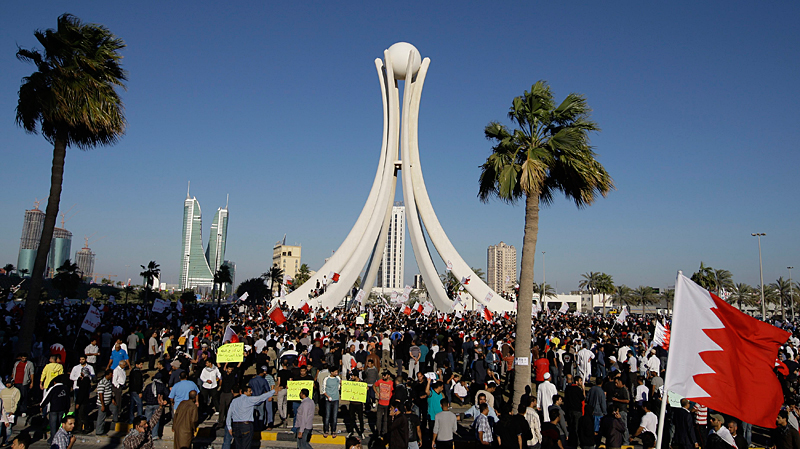The Bahraini government’s systematic suppression of freedom of expression, assembly, and peaceful protest is evident through a series of repressive laws and practices. Human Rights Watch (HRW) has highlighted these issues, particularly focusing on the political and civil isolation laws enacted in 2018. Americans for Democracy and Human Rights had covered before the consequences of these laws on the released political prisoners.
At the core of Bahrain’s assault on democratic processes is the 2018 political isolation law, a legal mechanism employed to stifle political opposition and curtail the activities of civil society. This legislation not only bars former members of political opposition parties from participating in parliamentary elections but extends its reach to prevent their involvement in the boards of civil organizations. This strategy, coupled with economic restrictions, including delays in obtaining “Good Conduct Certificates,” severely limits opportunities for former opposition members and ex-prisoners. The impact is further exacerbated by the effective silencing of political opposition through these laws, which barred members of opposition parties from running in the 2022 parliamentary elections.
The law disproportionately targets individuals associated with dissolved political groups, specifically focusing on opposition figures and activists arrested during the 2011 pro-democracy uprising. The absence of official data on the number of affected citizens raises concerns about transparency, with estimates suggesting that between 6,000 to 11,000 individuals have been retroactively banned from running for parliament and participating in civil organizations.
The denial of “Good Conduct Certificates” by Bahrain’s Ministry of Interior, a discretionary practice without legal foundation, serves as an economic sanction against political dissidents. Former prisoners, who often wait for months or years to obtain this certificate, face difficulties in securing employment and pursuing education or leisure activities. The capricious nature of this process is exemplified by instances where opposition figures are outright denied the certificate, undermining their ability to support themselves and their families.
The impact of the political isolation laws extends to civil society organizations, hindering their ability to function effectively. Associations, including prominent ones like the Bahrain Human Rights Society and the Bahrain Women’s Union, struggle to form boards due to the stringent approval process influenced by political isolation laws. Delays in board formation lead to severe consequences, such as the suspension of access to bank accounts and funding sources. There are fears that this could result in the infiltration of government loyalists into these organizations.
Bahrain’s repressive measures also extend to a ban on independent media since 2017. The human rights situation is alarming, with twenty-six individuals on death row after unfair trials, six sentenced to death since 2017. Authorities consistently target rights defenders, journalists, and opposition leaders, often focusing on their social media activity. Bahrain further perpetuates a hostile environment by denying access to independent rights monitors and the UN special rapporteur on torture, undermining basic human rights and stifling dissent.
The government’s repressive tactics were evident during the 2018 parliamentary elections when at least 12 former opposition figures were barred from running, and others boycotted the elections, leading to increased scrutiny by security agencies. The government’s application of political isolation laws, coupled with ongoing arrests and interrogations of citizens exercising their freedom of expression and association, paints a bleak picture of the prospects of free and fair elections.
Despite Bahrain’s constitutional guarantees of fundamental rights, including freedom of expression and association, the reality is far from democratic. The judicial system’s lack of independence and the broad failure to uphold these rights highlight the gap between constitutional protections and their implementation. International allies, including the US, the UK, and other European states, are urged to exert pressure on Bahrain to cease its repression of peaceful opposition and civil society. The need for the repeal of the 2018 political isolation laws, the end of discriminatory practices, and the restoration of full political and civil rights is crucial to fostering a truly democratic Bahrain.





